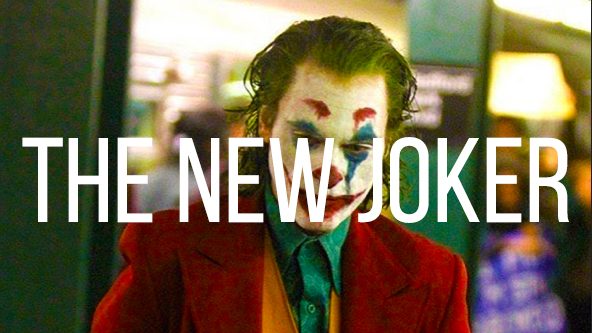Joker: The subtlety of a beautiful trainwreck
Once in a while, a movie is something truly exceptional. Both actors and directors work in perfect unison, the cinematography is on point and the story being told is poignant, emotional and believable. The Joker just misses this state of perfection.
Don’t get me wrong, it’s an amazing movie. Joaquin Phoenix’ turn as the Clown Prince of Crime is one that could even throw Heath Ledger of his throne. The intention of Phoenix’ Arthur Fleck (A.Fleck, ha) is noticeable in every single movement. He manages to turn the act of laughing into something truly horrendous, painful and embarrassing. The way his extremely skinny body moves on the screen is equal parts mesmerizing and terrifying. Every glimpse of his eyes shows the perfect emotion for the scene, every wave of his cigarette-holding-hand is loaded with meaning, almost as if he is conducting himself.
Phoenix’ acting in this movie is truly transformational and at the absolute top of my personal list for taking home the Oscar for best lead actor. There is not a single scene without Arthur Fleck on screen and in every frame he dominates the screen, even opposite absolute legends like Frances Conroy and Robert de Niro. This movie – this character was made for Joaquin Phoenix, and he knocks it out of the park. He is the only Joker that is both absolutely terrifying and genuinely pitiful all at once, without seeming disingenuine.
The pain and hardships of Arthur can be felt throughout every scene in the movie, which is also where the movies’ sole problem is created: it lacks any form of subtlety.
Admittedly, the story is one-hundred-percent believable. Turning the Joker into someone with a mental affliction, shunned by society for this, feels true to life. When mental health systems start to fail, people start falling through the cracks. This is a twisted reflection on those kind of harrowing situations. It almost reminded me of serial killers trying to call a therapist before they committed their atrocities: it might’ve been prevented if any help was there. This turns Joker into more than just a character study, it turns it into a societal critique of a modern, capitalist society failing to protect its downtrodden and poor, even vilifying them, whilst protecting the wealthy that are in power. Despite the movie being set in 1981, this message still rings too true. It’s a societal critique that’s as in-your-face as a Banksy painting of a cock pissing on a banker.
The lack of subtlety works for this part of the movie, it created tension for our main character to frolic around in, in a situation that he both influences and is influenced by, he almost turns into the creator, inhabitant, victim and leader of his own insane ecosystem in which he can truly be himself. He turns into a symbol, a movement instead of an edgy, rambling madman without any cause (looking at you, Leto)
Giving this Joker an internal cause for his downfall (or uprising, depending on your perspective) enhances the story in a phenomenal way. He might be victimized by an absolutely terrible, capitalist system: he figures out how to turn that frown upside down in the most horrible – albeit effective – way. It’s hard to sympathize with a character that starts to brutally murder people halfway through the movie, but you kinda do, you think his victims deserve it. The Joker literally drags you, the viewer, down into his madness.
However, Todd Philips – the director – underestimates his audience, having to explain a certain twist in the story was completely unnecessary, since half the theatre was gasping before this reveal was made explicit. Maybe this is because Philips doesn’t have a lot of experience with subtle storytelling, he made his fame with the Hangover movies, but that in-your-face mentality hits you across the face like a salmon jumping from a river. Not every twist and turn has to be explained, not every decision needs to be precursed by an excellently written and delivered monologue. I know the first rule of film is show, don’t tell, but Phillips’ editing has us show too much sometimes, which makes the film overexplain itself at some points.
As for the rest: it’s a gorgeous film. The movie draws heavily from Scorcese classics like Taxi Driver and The King of Comedy, with De Niro’s part almost being a twisted homage to the latter. The sets breathe and feel alive and truly embody the perfect amalgamation between the grim Gotham and the dirty streets of New York. It even manages to tie into the larger Batman-mythos, without becoming too much of a fan-service, although it does teeter on the edge sometimes.
This movie is not just a must see for any comic book fan, but a must see for any movie fan. Besides the film being about as subtle as a trainwreck, it’s a gorgeous trainwreck to look at. A trainwreck that takes you down into its chaos, insanity and destruction, with you wildly laughing along the way.


Rich, je hebt jezelf overtroffen! GOED STUK!!!!
buy kamagra 100mg